The history knows more than one case of forgery of old papers. The older the document is, the more well-known its creator. The more important information contained is, the higher the price. If the contents of the document conflicts with already existing historical information reconsideration of any event or a historical person can take place. Sometimes sensational finds turned out to be the work of dishonest people. One of the greatest forgeries in history is affaire of a Denis Vrain-Lucas.
This swindler was talented and very hard working person for sure. However, the fate has led the way in which, unfortunately, he used his outstanding abilities and perseverance in work for making illegal frauds. Vrain-Lucas’s goal was to make a fortune within the shortest possible period of time. During eight years the swindler managed to fabricate and sell 27 thousand counterfeit letters signed by the greatest people of the past.
Denis Vrain-Lucas was born in the provincial town of Chateauden in 1818. There is little information about childhood as well as youth. The family was poor. Denis had to begin working as a farm laborer on the surrounding farms. He managed to get only primary education. At the age of 20 the guy was lucky to get a job of a judicial clerk. Then he was a pawnbroker. However, ambitious Vrain-Lucas having certain literary inclinations was not satisfied with such life. He was sitting during hours in the library of his town doing self-education.
Literary activities sparked Vrain-Lucas’s interest but soon he understood that it’s too difficult to reach success in this field and put forth tremendous effort in studying history. At the age of 34 he left for Paris cherishing hopes to get the job of a librarian. In spite of having useful contacts and recommendations the dream turned out to be impossible: Bachelor's degree and knowledge of the Latin language were a must for applying to the job in a library.
It is unknown how Vrain-Lucas’s fate would have taken shape after such a blow but soon there was an even changing his life radically. Vrain-Lucas applied to the shady business Engaged in the compilation of pedigrees. The firm had quite doubtful reputation. They said that the customers were sold forged documents. Thus, the person whose way up to that time was the way of an honest hard worker turned to the way of fraudulent activities. At this shady enterprise Vrain-Lucas gained experience in the forgery of documents and understood that this kind of business can bring good income.
In 1862 there was the fatal meeting for Vrain-Lucas with a very well-known scientist, an outstanding astronomer and a geometrician Michel Chasles whose passion was collecting ancient manuscripts. Mr. Chasles wanted to make up for shortfall of documents revealed in the Academy of Sciences. This was what he told about to his new friend. Mr. Vrain-Lucas understood that he could not loose such a great chance. First of all, trustful Chasles was sold letters which authors were Rabelais, Racine and Molière. For making an explanation on how a simple modest clerk got those letters the following story was created.
The basis of the collection seemed to be compiled as if from a collection of documents of a really existing person, Blondo de Sarnage, which passed from hand to hand replenishing with new and new letters. Assurances of the swindler among the hosts of the archive there were a writer Francois Rabelais, a physicist Foucault and a friend of Newton Demeso. During the revolution, the archive was sent to earl Boisjurden on the orders of Louis XVI who never existed in fact. Boisjourden tried to take out an invaluable archive to America. However, the ship got into a storm, the earl died in the sea. The storage chest was caught by rescuers. In the end he came back to France, to the family of earl. Now, in the words of Vrain-Lucas, one of descendants sells out the family relics without the consent of the family while he, Vrain-Lucas, to be an intermediate party if Chasles swears to leave everything in secret.
The history perfectly explained the emergence of more and more new letters. The fraudster worked day and night, making 30 documents a day. Sheets for letters were cut from cheap old books. Sometimes there were even watermarks on paper, but nether Vrain-Lucas nor Mr. Chasles put any attention to this. The special ink invented by Vrain-Lucas was tested by chemists who were already able to determine the age of the ink at that time. The finished fakes swindler smoked above the flame of a candle and wet with sea water to give them a more ancient look and confirm the story with the chest caught out of the sea. Therefore, the technical level of the counterfeit was quite high.
However, letters is not only paper and ink, but also a text. How did the swindler manage to create so many texts with devious content and different styles? The answer is simple: he copied a text from encyclopedias, adding a few words here and there to make it look like a letter. Nevertheless, at times he had to write letters by himself. At first the swindler was cautious and gave out his work for the autographs of the recently deceased famous people of France. But soon letters of Shakespeare, Newton, Galileo, Archimedes, Alexander the Great, Cleopatra, Caesar, Pontius Pilate, Mary Magdalene, Lazarus and Judas Iscariot appeared. Vrain-Lucas took up the position that they were translations from non-preserved originals to put wise of why great people of different countries and epochs wrote exclusively in French.
Letters written by Vrain-Lucas differed with absurd content and were full of stupid mistakes. Sometimes a sender and a receiver of a letter even lived in different epochs. A distinctive feature of all these letters was that their authors were flattering about France. Even Mary Magdalene wrote to the risen Lazarus that it was a wonderful country and it is the very country that was going to have a special flowering of arts and sciences. Passionate patriot and collector Chasles did not notice the obvious absurdities. The opportunity to possess invaluable documents completely turned his head.
The tremendous fraud lasted almost eight years. But the self-exaltation of Michel Chalais brought everything to ruin. The scientist could not withstand temptation expose his treasures on public display. At first he presented several letters from his collection to the Belgian and French academies as well as gave a priceless present for the Florentines to the celebration of the six hundredth anniversary of the birth of Dante Alighieri. It was the autograph of the poet. All counterfeits did not arouse any suspicion and were accepted with gratitude.
Afterwards Chasles decided to restore historical justice and prove that the Englishman Newton stole the formula of the law of universal gravitation from the Frenchman Pascal. Several Pascal’s letters in which Pascal told of his study of the interaction of the Sun and the planets and the drawn conclusions were given to famous scientist-physicists in evidence. Some part of the French scientists exulted; the other reacted to new information with skepticism. The letters contained a lot of mistakes, handwriting and style differed from the handwriting and style of other well-known letters and Pascal himself, as far as his biographers knew, never showed much interest in astronomy.
Compelling evidences were needed to argue with scientists who devoted their whole lives to studying the biographies of great physicists. Chasles invariably found them in all the new letters given to him by Vran-Lucas. In such a way the letter from Pascal to Newton (The English scientist was 12 years old at that time according to the date of letter) appeared as well as the letters of Galileo, Huygens, Boyle, Mariott and other scientists that confirmed the priority of Pascal in many scientific discoveries. However, Vrain-Lucas could not take into account all the details because he had already gone blind by the time they were written. Galileo's letter to the disciples appeared immediately appeared in which it was explained that he only pretended to be sick to save himself from the persecution of the inquisition.
The dispute lasted two years. For each objection of the opponents there was immediately a new letter refuting it. Naive Shawl told Vrain-Lucas about the evidences of his opponents and the swindler immediately "found" the right letter. Even when it was proved that some of the letters were simply copied from the encyclopedia (Of course, Vrain-Lucas did not understand anything in astronomy and physics and did not venture to compose texts by himself), the swindler did not give up. He provided a letter from the author of the encyclopedia confirming that in his science work he used letters that later were included in the archives of the mythical Boazhurden. But later some more sources of borrowing texts were found out and it was getting harder and harder for the swindler to get out of a mess. Finally, one of the letters of Galileo was sent for comparison with the original records of the scientist in Florence. The answer was unequivocal: it is a fake.
To the last Chasles refused to believe that he was fooled. Being afraied that Vrain-Lucas will find a new buyer, Chasles demanded to establish supervision over him and afterwards to arrest the swindler. The forger was caught out when writing a new letter. The irony of it is that it happened only a few days before the response from Florence. Nobody has left doubts that all letters were fakes. The trusty Chasles became a laughingstock, and Denis Vrain-Lucas was brought to justice. The verdict of the court was not too severe: two years in prison and payment of a fine of five hundred francs. During the whole fraud the swindler earned 140 thousand.
In prison Vrain-Lucas wrote exculpatory memoirs proving that in the beginning the letters were made just for a joke and then it was simply impossible to stop, seeing Chasles’ sincere admiration of each new purchase. In addition, Vrain-Lucas claimed that his goal was to draw attention to borrowings of many discoveries made by French scientists to which there were irrefutable evidences in not found during the search documents.
After prison Vrain-Lucas was twice more he appeared before the court and was sentenced to imprisonment. He was caught on a fake genealogic tree and stealing books from the library. The great forger died in 1881 in his home town, where in the last years of his life he kept a second-hand bookshop.
My original post in Russian on Golos - Король фальсификаторов - Дени Врэн-Люка
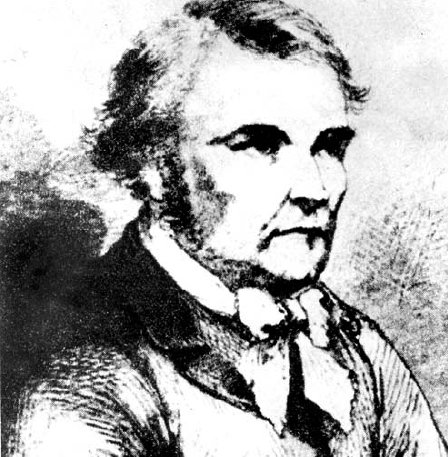
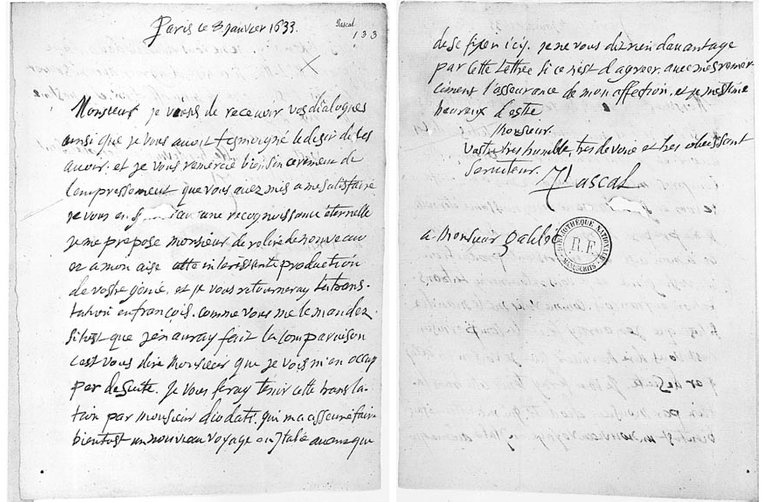

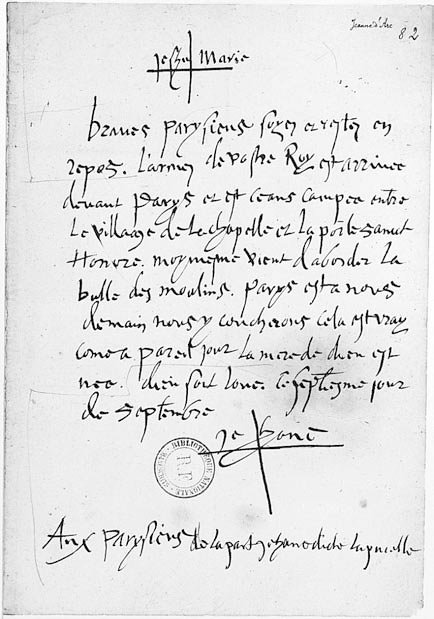
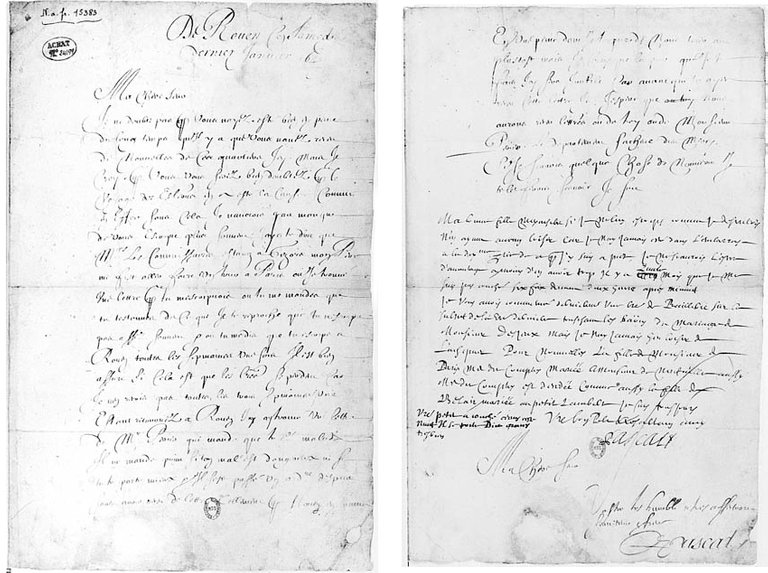
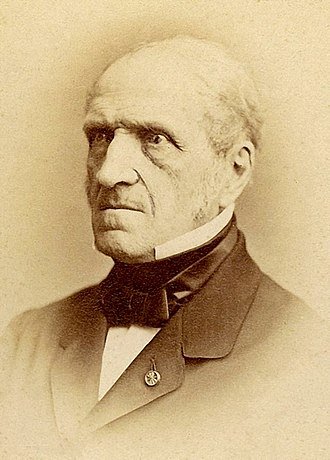
Дмитрий, оказывается вы и на Steemit есть.
Peace, Abundance, and Liberty Network (PALnet) Discord Channel. It's a completely public and open space to all members of the Steemit community who voluntarily choose to be there.Congratulations! This post has been upvoted from the communal account, @minnowsupport, by dmilash from the Minnow Support Project. It's a witness project run by aggroed, ausbitbank, teamsteem, theprophet0, and someguy123. The goal is to help Steemit grow by supporting Minnows and creating a social network. Please find us in the
If you like what we're doing please upvote this comment so we can continue to build the community account that's supporting all members.
Thanks)
Interesting! Such tricks could learn ))
Congratulations @dmilash! You have received a personal award!
Click on the badge to view your own Board of Honor on SteemitBoard.
For more information about this award, click here
Congratulations @dmilash! You have completed some achievement on Steemit and have been rewarded with new badge(s) :
Click on any badge to view your own Board of Honor on SteemitBoard.
For more information about SteemitBoard, click here
If you no longer want to receive notifications, reply to this comment with the word
STOP